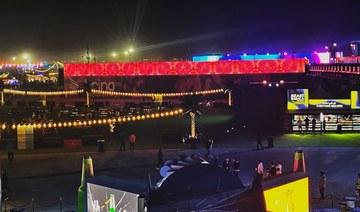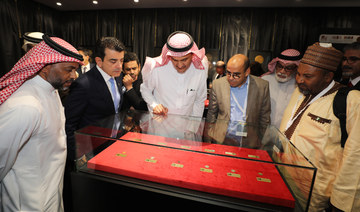RIYADH: Dr. Peter Feldhaus is the new CEO of the thyssenkrupp Industrial Solutions, which is currently building the largest cement plant in Saudi Arabia. Dr. Feldhaus has outstanding strategic skills in various sectors.
On the occasion of the German National Day, Dr. Feldhaus spoke with Arab News, on a range of subjects, mainly the growing presence of thyssenkrupp in Saudi Arabia in particular and in the Middle East and North Africa (MENA) region in general. He also focused on the Saudization of the workforce, thyssenkrupp’s plans to support the country’s Vision 2030 and the thyssenkrupp’s internal transformation program called “planets,” which is designed to make this giant German company more efficient, innovative and far ahead of its peers in the world.
Underlining the significance of German ties with Saudi Arabia, Dr. Feldhaus said: “The Kingdom is specifically a key growth country for us, and hence my current visit is to acquaint myself with the Saudi business environment, talk to customers and also to government officials.”
On the SR4.2 billion ($1.12 billion) Yamama Cement Project, he said it is the largest cement plant ever to be built here. “We are making very good progress on the implementation of the project. Yamama Saudi Cement Company has appointed thyssenkrupp to build two turnkey cement production lines with a total capacity of 20 000 tpd. The plants are being built at a new site about 80 km east of Riyadh,” he said.
“Our partnership with Yamama is built on a longstanding tradition and dates back many decades… We are delighted that Yamama is once again putting its faith in our comprehensive experience in the turnkey construction of complete cement plants worldwide. With our reliable, highly efficient technologies, we are profiting from infrastructure expansion in many growth regions and at the same time contributing to the conservation of valuable resources. thyssenkrupp Industrial Solutions is carrying out the contract on an EPC (Engineering, Procurement, Construction) basis. Its scope of supply includes all components for the new lines, from raw material preparation to clinker manufacture to cement loading. The main components include two mobile primary crushers for limestone, three crushers for additives, two crushers for correctives, as well as two circular blending beds for limestone, and various additive storage facilities. The new lines are scheduled to start operation in 2018,” he said.
Vision 2030
On plans to visualize cooperation within the framework of the Saudi Vision 2030, Feldhaus said: “The Vision 2030 is an interesting and fascinating set of framework. thyssenkrupp Industrial Solutions can play a major role in it. We are much broader in terms of our product spectrum. Saudi Arabia has put more focus on mining, which is also an important specific part of the Vision 2030. Our experience in mining is unmatched and unparalleled. As one of the few full-line suppliers worldwide, we are reliable partners to demanding customers, offering them tailored, cost-efficient and responsible solutions for mining, processing, handling raw materials.
“Our services include designing and building individual machines and complete installations as well as modernizing and upgrading existing systems. From low-cost standard machines to custom systems for extreme conditions — our solutions satisfy all requirements and create lasting value for our customers. To optimize our mining solutions, we use the high-precision, extremely robust radar technology, e.g. for positioning or for volumetric scans.”
Giving a detailed report of the mega projects currently being executed by his company in the MENA region and in the extended neighborhood including GCC countries, the thyssenkrupp Industrial Solutions CEO said: “We have had several projects in the region. We have supplied mining equipment to the Ma’aden.”
The company, he said, has completed the Safwa project in Eastern Province of the Kingdom. In Egypt, thyssenkrupp Industrial Solutions will be building a nitric acid plant as well as an ammonium nitrate plant for Abu Qir Fertilizers. The project will start by the beginning of next year, and the contracts will be concluded soon.
In fact, MENA is a very diverse region and offers many opportunities for thyssenkrupp. It covers 70 countries with different cultures, political and economic maturity. Young populations and dynamic societies create the need for industrial products and services that offer sustainable solutions. This is where thyssenkrupp as a diversified industrial company comes in. “In the region we are particularly strong in Elevator Technology and Industrial Solutions businesses, but present also with Components Technology & Materials Services. In the 2015/16 fiscal year, sales in the region amounted to around €2.4 billion. That’s something our approximately 4,300 Thyssenkrupp employees in the region can be proud of. Our regional headquarters are in Istanbul, Turkey.”
Feldhaus thinks his new technology and services are designed to drive efficiency and competitiveness especially in downstream industry in the Middle East region.
Giving a broad view of it, he said thyssenkrupp Industrial Solutions has a line of new technologies and services, which are designed to drive efficiency and competitiveness in the downstream industry in the Middle East. Most of the operation and maintenance programs for the existing plants until now are focused on supervising and executing linear updates and technological exchanges. However, asset management has to go even further and be integrated into the plants’ management and engineering processes, to be able to boost a plant’s efficiency. Combined, engineering competence, plant building experience and integrated asset management help unlock unutilized capabilities and improve the overall performance and efficiency to achieve higher performance and profit margins. “We have been in this region for more than 150 years. We are developing solutions that enable the energy and industrial sectors to operate at their full potential. We are heavily investing in our electro chemical technologies, which will help energy storage,” he said.
“We are in general working on optimizing the energy efficiency and ecology of our plants and technologies. For example for our cement plants, where we are reducing the energy consumption and greenhouse gas emissions.”
On reorganizing the company as part of the transformation program “planets,” Feldhaus explained the changes after reorganization and culture change within the business area, saying “With planets we strategically transform our business area Industrial Solutions. We are setting Industrial Solutions up for future success.” The aim, he said, is to secure growth by increasing competitiveness, focusing more strongly on customers and markets — including a strengthened regional footprint — as well as on expanding our service business. One key element of this is driving cultural change within the business area.
On working for the nationalization (Saudization) of workforce in his Saudi operations and the initiatives that thyssenkrupp has taken to train and employ young Saudis, the CEO said: “We are generally increasing our local capabilities in the Kingdom of Saudi Arabia.”
To achieve this, the company supports the Saudi Arabian engineers program, as part of which Saudis study at German universities, he said.
“Until today, we have already trained 15 of those highly qualified engineers on the job at our technology centers in Germany after their studies. All of them are now working for thyssenkrupp in Riyadh. We encourage and welcome Saudi graduates to apply at our company as we are looking to hire more Saudis in the months and years to come.”
We are increasing our local capabilities in Kingdom to help Saudization
We are increasing our local capabilities in Kingdom to help Saudization
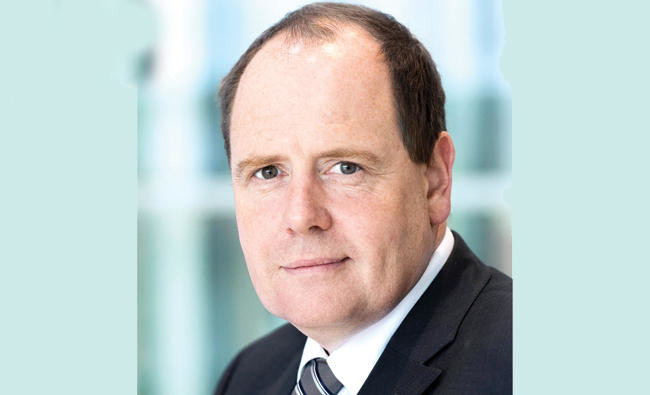
Digital wellbeing summit at Ithra to confront technology’s dangers, advantages

- Event at Ithra will have over 110 digital experts, 70 speakers from 20 countries
DHAHRAN: After a two-year hiatus, the second Sync Digital Wellbeing Summit 2024 returns to the King Abdulaziz Center for World Culture, or Ithra, this week for discussions and debates by world-leading experts.
Scheduled for May 22 and 23, Ithra will be buzzing with all things that merge technology and wellness, and will feature 110 digital experts and 70 speakers from 20 countries.

“The Sync Summit 2024 is not just another conference. It’s a platform for meaningful discussions, critical reflections, and collective actions for a better digital future,” said Wadha Al-Nafjan, head of digital wellbeing at Sync. “As we navigate the digital paradox, it is vital to recognize our responsibility in shaping the world we want to live in.”
Topics including algorithmic homogenization and identity loss, AI’s impact on the creative industries, and misinformation will be tackled under the theme “Confronting the Digital Paradox.”
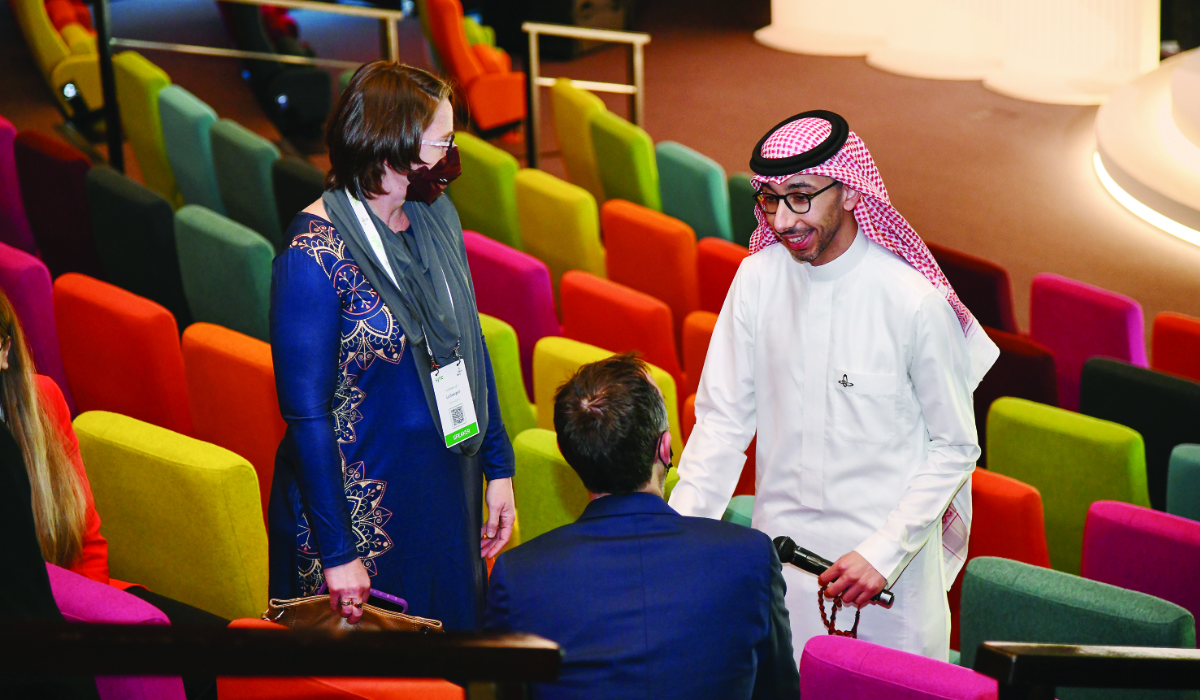
The summit will be held at the Ithra headquarters in Dhahran, with a live stream available.
Day one, organized around the sub-theme “Cuts Both Ways: Wrestling with the Tensions of the Digital Era,” includes seven panels, two fireside chats and two keynote talks.
It’s a platform for meaningful discussions, critical reflections, and collective actions for a better digital future.
Wadha Al-Nafjan, Head of digital wellbeing at Sync
Day two, centering on the sub-theme “A Digital Renaissance: Shaping Our Relationship with Digital for a Better Future,” will have eight panels and three keynotes. In addition, it will have the Sync Spotlight series finale, for which creative influencer Omar Farooq will screen his new documentary, “The Dark Side of Japan.”
Although there was no summit last year at Ithra, the Sync team conducted extensive research globally that led to some compelling findings.
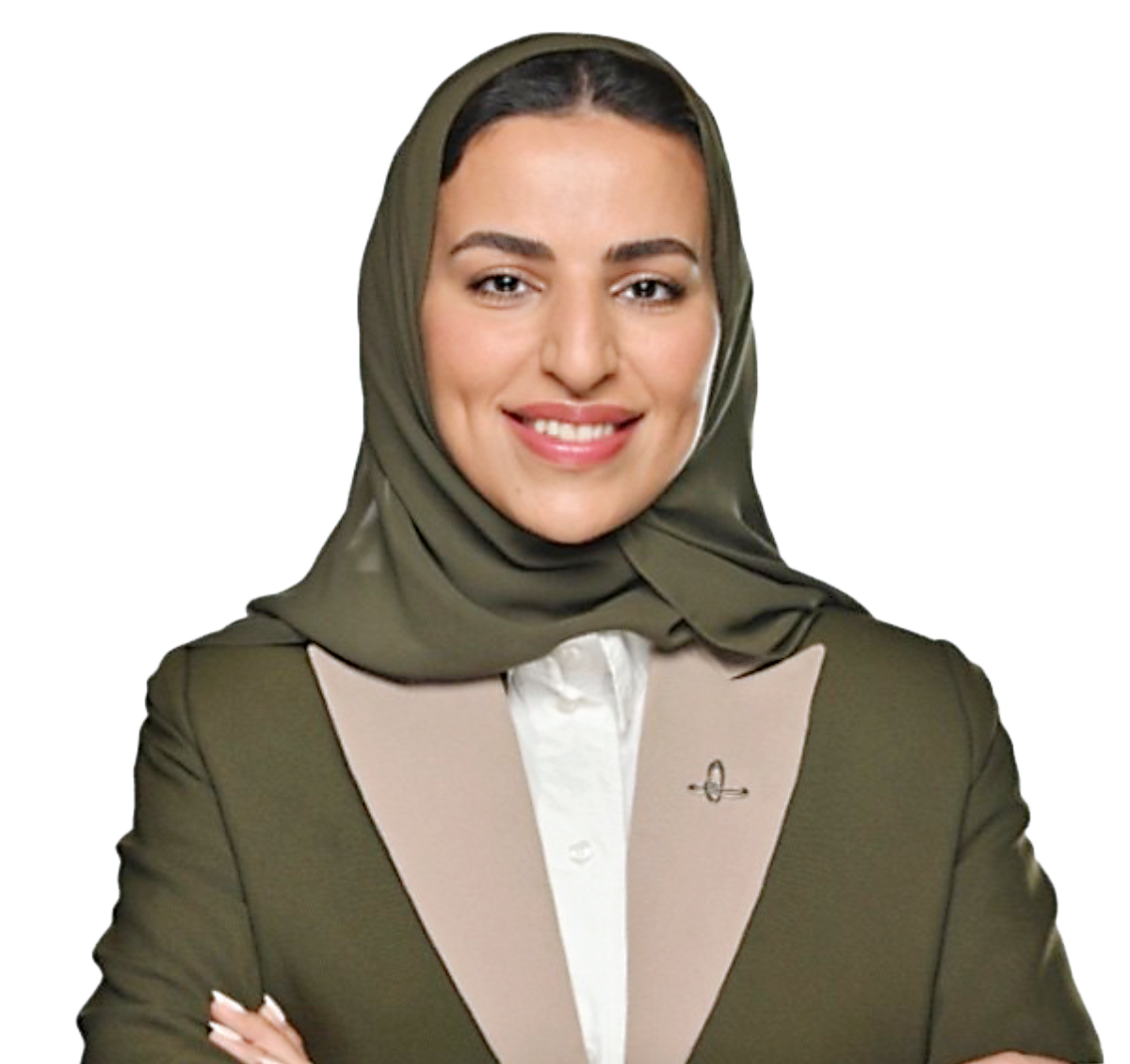
According to their research, 81 percent of those surveyed are concerned about the unsolicited collection of their personal data, 53 percent struggle to maintain boundaries between their work and personal lives, while 66 percent believe that the internet needs more regulation. About 73 percent of participants think social media was designed to be addictive.
Furthermore, the average time spent online daily has gone down, compared with 2021. About 68 percent claim to understand AI, 87 percent think technology is allowing people to work and study more flexibly, and 91 percent use digital devices to access resources including books and tutorials.
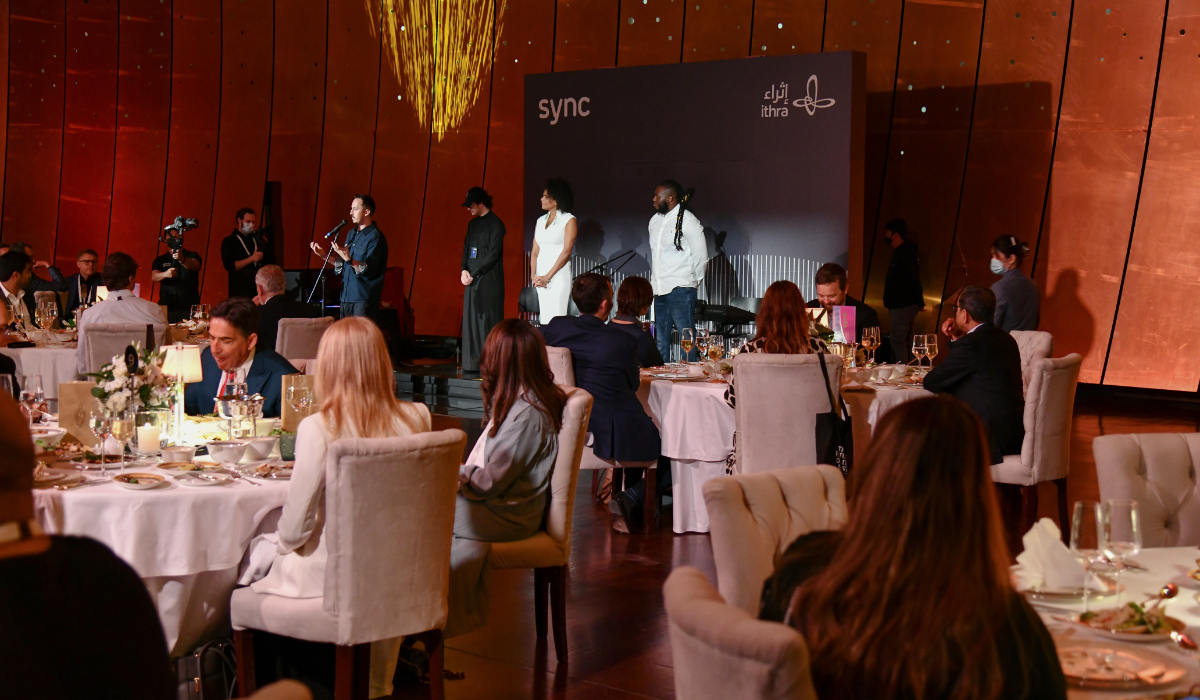
“Never before has the world been so connected to everything and everyone. We know technology has improved our lives, but it also has the painful potential to distract and harm,” Ithra said in a statement to Arab News. The summit’s activities are geared toward “ensuring that we as humans come together to keep digital technology in check and working towards the greater good, safeguarding its future, and our own.”
The event will bridge the gap between academic research, industry practices, and end-users regarding digital wellbeing through a variety of sessions.
Sync Spotlight
A series of sessions will run in parallel to the two-day Sync Summit stage program, offering greater interaction between speakers and audience members.
Sync Action Forum
The worldwide Gen Alpha Forum, an initiative developed by Sync Research with McCann Worldgroup, will see the community expand to include Saudi Arabia parents of Gen Alpha children, as well as educators, and other Gen Alpha stakeholders.
Majlis
In partnership with Johns Hopkins, which has a local hospital at Aramco, the Majlis will host three sessions exploring digital wellbeing with educators, researchers and students.
The Plaza
The gamified experience will dive into the findings compiled by the Sync Research team through the lens of three projects which were developed with partners Horizon Group, PSB and McCann Worldgroup.
Sync Immersive
In this interactive journey, the organizers promise to provide a three-step experience designed to impact participants’ emotions and understanding, while guiding them into navigating the complexities of digital ethics.
Podcast
The booth experience will serve both as a studio to record live podcast episodes hosted by Mo Gawdat, formerly of Google, and as a multi-functional space for hosting media interviews. Saudi Arabia’s Mohammed Islam, host of the English-language podcast, The Mo Show, will also be present.
Other notable speakers this year include US data scientist and AI specialist Rumman Chowdhury; Saudi Arabia athlete, FIFA World Champion and owner of an esports team, Abdulaziz Alshehri; and Apple Inc. co-founder Steve Wozniak.
One May 21, Ithra will host the Global Digital Wellbeing Assembly, a gathering of experts from across the Kingdom and the globe to discuss the guiding objectives and roadmap for a new digital wellbeing society.
Registration is now open and attendance is free.
Saudi artistry blooms in floral sculptures

- To the artist, nature signifies creativity, inspiration and deep magical meaning, she told Arab News
RIYADH: Saudi artist Sara Abdullah’s delicate floral sculptures find inspiration in the nuances and harmony between humanity and nature.
To the artist, nature signifies creativity, inspiration and deep magical meaning, she told Arab News.
“Both (art and nature) are means of exploring the deeper aspects of the human existence. As artists, we can capture and express the intangible aspects of our lives that defy simple verbal descriptions,” she said.
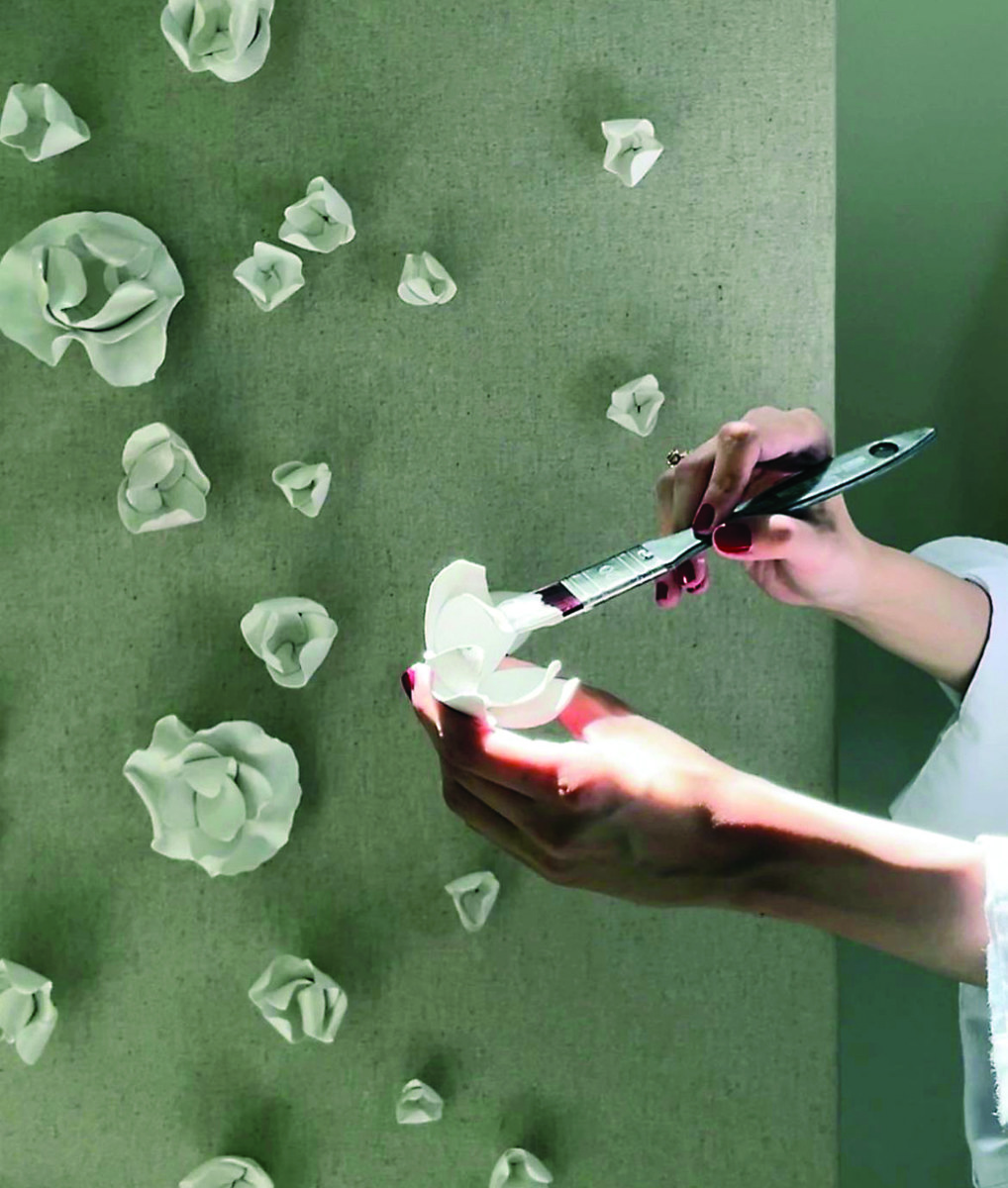
Abdullah credits her artistry to her role model, her father, who introduced her to a multifaceted world of art at a young age.
“My story is like my dad’s — we started by painting characters and self-portraits but eventually transitioned to creating nature artwork,” she said.
“My father’s deep love for art and trying to convey his artistic message to the world is what makes me continue to search more for the deep meaning between art and nature and how to transform my ideas into a valuable work of art that includes a purposeful message that touches people.”
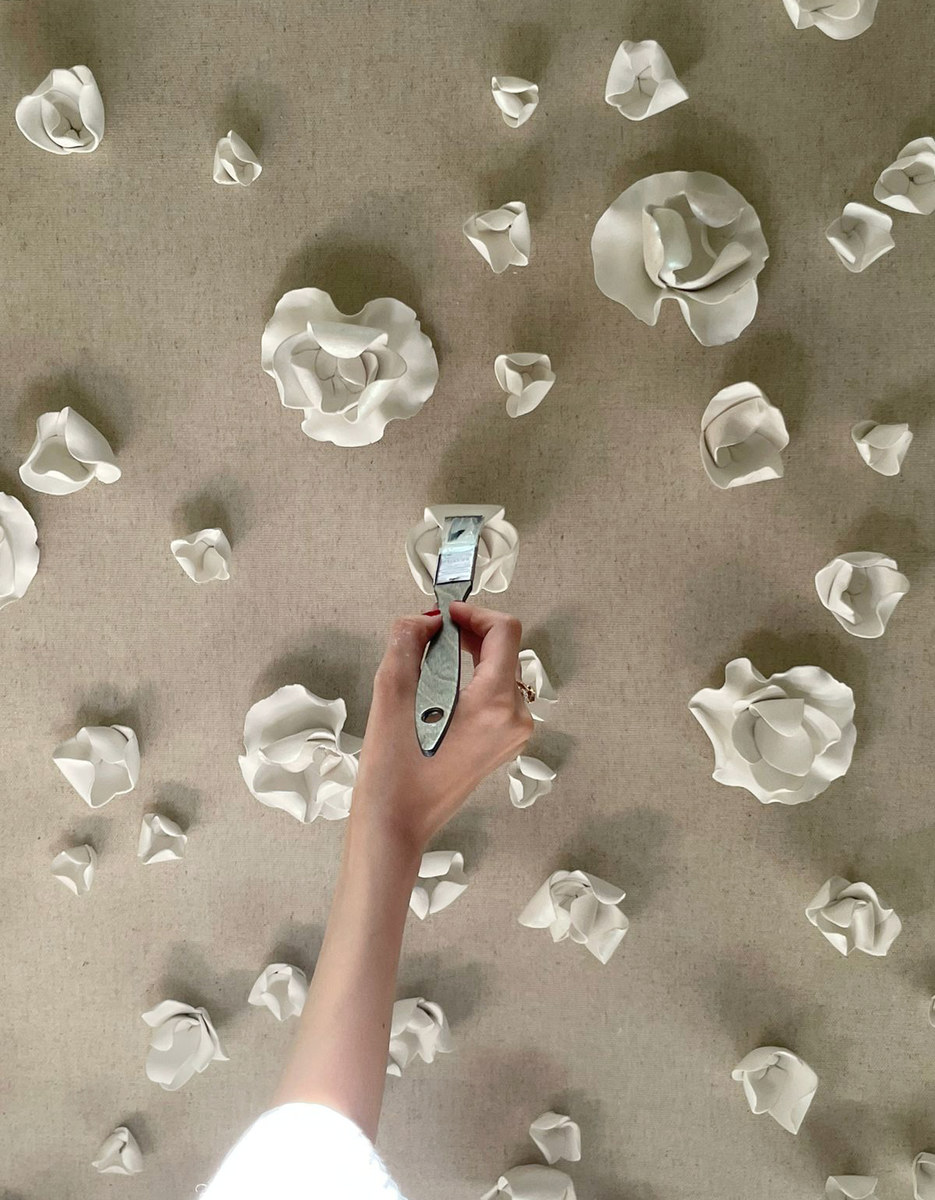
Her two art collections, Alstroemeria (2024) and Anemone (2023), are each dedicated to the spotlighted flower.
In the Alstroemeria collection, her sculptures begin with the design of the wood base, which is curved to reflect the feeling of containment and support.
She handcrafts pieces of the flower with twisted and connected edges, representing the petals from the beginning of their life until their flowering.
“Its distinction lies in its longevity among the flowers, and this is what adds to the true meaning of the artwork, which is connection, stability, love, friendship … feelings and bonds that are established after a long period of relationship,” the artist explained.
The message of the artwork is the “close connections and depth of feelings between people and the ability to support and contain each other as we go through life’s experiences.”
Abdullah describes her Anemone collection as “nature embodied in abstract sculptures … a harmonious dance between light and shadow.”
The wildflower has long inspired artists and storytellers, appearing in various works of Arabic literature, including in poems, stories and folk tales.
Anemone flowers generally grow open and wide, with a dark center.
Through this collection of sculptural works, Abdullah embodies the feeling of joy accompanied with dancing.
“When something happy happens in your life, then you start dancing as if you seem to be dancing lightly in the open air and you feel that you are open to the world due to the influence of this happiness. This simile reflects when you see the cold and light wind between the flowers, making them sway between each other lightly,” she said.
“When I prepare to create an art collection, I always try to choose pastel colors that are calm and comfortable to look at as natural colors, in addition to using materials to highlight some pieces or lines in the painting, which adds a three-dimensional touch to the artwork.”
Abdullah also described her outlook on life: “Try to deal with life as if you are like a flower that grows in its beautiful shape … and no matter how the wind blows on her at the end, she blooms beautifully again. Be always like flowers bloom.”
Saudi FM expresses Kingdom’s solidarity with Iran after helicopter crash

- Iranian president, foreign minister and seven others died when the aircraft they were traveling in went down on Sunday in a remote area of northwestern Iran
RIYADH: Saudi Foreign Minister Prince Faisal bin Farhan expressed the Kingdom’s solidarity with Iran and its people following the death of President Ebrahim Raisi and Foreign Minister Hossein Amir-Abdollahian in a helicopter crash on Sunday.
During a phone call with Iran’s acting Foreign Minister Ali Bagheri Kani on Monday, Prince Faisal expressed his condolences over the deaths of the president and his accompanying delegation.
Raisi, 63, his foreign minister and seven others died when the aircraft he was traveling in went down on Sunday in a remote area of northwestern Iran, where the wreckage was only found on Monday morning.
267,657 pilgrims have arrived so far in Saudi Arabia ahead of Hajj

- This year’s Hajj, for the Hijri year 1445, is expected to begin on June 14 and conclude on June 19
RIYADH: As of May 19, 267,657 pilgrims had arrived in Saudi Arabia via air, land and sea ahead of Hajj, according to the General Directorate of Passports.
The directorate said it is using all of its resources to ensure entry procedures for pilgrims at all arrival points run as smoothly as possible by providing platforms that use the latest technical advances and fully trained staff proficient in many languages, the Saudi Press Agency reported.
This year’s Hajj, for the Hijri year 1445, is expected to begin on June 14 and conclude on June 19. Flights carrying pilgrims began to arrive in the Kingdom on May 9.
Saudi Libraries Commission expands Culture House network to Asir region

- Culture Houses are part of the Quality of Life Program, an initiative under Saudi Arabia’s Vision 2030
RIYADH: The Libraries Commission recently inaugurated a Culture House in the Ahad Rafidah Governorate, Asir region.
This follows a comprehensive renovation and upgrade of the public library, transforming it into a cultural hub for the area. The launch event was attended by the commission’s CEO, Dr. Abdulrahman Al-Asim.
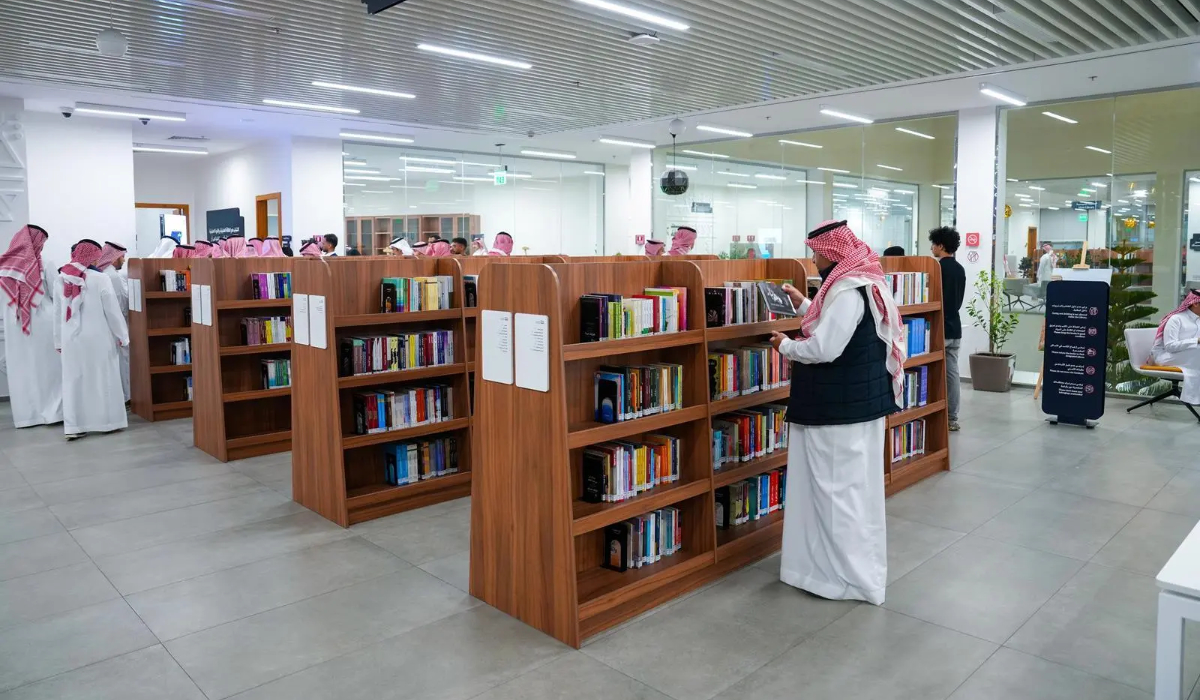
Al-Asim told the Saudi Press Agency that the project aims to fulfill the needs and aspirations of visitors, from its architectural design and facilities to the annual schedule of events. He noted that each Culture House in the Kingdom has a clear plan for sustainability and activation, offering acultural activities for all community segments, including children, adolescents, writers, intellectuals and artists.
According to SPA, since its soft opening four months ago, the Culture House in Ahad Rafidah has attracted nearly 30,000 visitors.
The Culture House has learning spaces, a children’s theater, a main theater, and a library with designated reading areas. It also includes spaces for innovation and technology. The facility offers several amenities, such as prayer rooms for men and women, meeting rooms, a printing and computer center, a cafe, and a shop.
Culture Houses are part of the Quality of Life Program, an initiative under Saudi Arabia’s Vision 2030. The program aims to develop cultural infrastructure, enhance cultural sites, and improve public libraries, thereby contributing to the Kingdom’s cultural and artistic advancement in line with the goals of Vision 2030.



